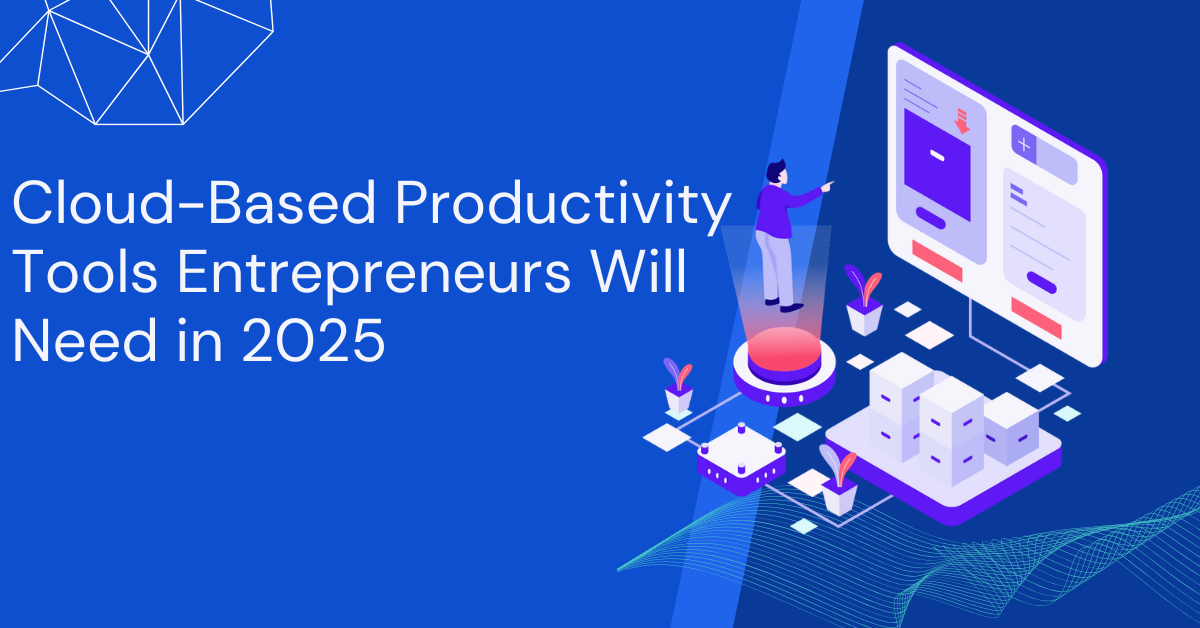Cloud-Based Productivity Tools Entrepreneurs Will Need in 2025 In today’s digital-first economy, entrepreneurs can’t afford to waste time on scattered workflows or outdated software. As remote work and AI automation become the norm, cloud-based productivity tools are the secret weapons for building faster, smarter businesses in 2025.
Whether you’re a solopreneur, startup founder, or managing a remote team, here are the must-have cloud tools to stay efficient, organized, and ahead of the competition.
1. Notion – All-in-One Workspace for Teams and Individuals
Notion remains a favorite in 2025 because it combines note-taking, task management, document creation, and collaboration in one sleek interface. Use it to:
- Plan product launches
- Track KPIs
- Build knowledge bases
- Organize your entire startup roadmap
Thanks to AI integrations, Notion can now generate summaries, rewrite documents, and suggest content—all within your workspace.
2. ClickUp – Project Management Made Smarter
ClickUp has become the go-to for teams who outgrow tools like Trello or Asana. With robust project views (list, Gantt, board), automation, and native chat, it adapts to how you work.
Bonus: In 2025, its built-in AI assistant helps write tasks, auto-prioritize workloads, and generate reports based on team performance.
3. Figma – Real-Time Collaboration for Designers and Developers
Figma isn’t just for designers anymore. It’s now widely used by founders and marketers to brainstorm product UX, build mockups, and collaborate across departments in real time.
Figma’s cloud-first approach means no more messy file versions—everything updates instantly and securely.
4. Slack + Slack AI – Smarter Team Communication
Slack is still the backbone of real-time team communication. But in 2025, it’s evolved with Slack AI, which can:
- Summarize long conversations
- Auto-reply to basic messages
- Suggest channels for new ideas
- Translate messages across languages
This keeps your inbox clean and your team moving faster—especially if you’re working across time zones.
5. Google Workspace – Still Essential for Docs, Sheets, and Drive
Despite new tools, Google Workspace remains essential. With deeper AI features in Docs and Sheets (like smart autofill, formula suggestions, and real-time summarization), entrepreneurs can:
- Build pitches
- Collaborate on financial models
- Store all files safely in the cloud
It’s the glue that connects most productivity stacks.
6. Loom – Fast, Visual Communication
Need to explain a process or give feedback without jumping on a Zoom call? Loom is your go-to tool. Just record your screen + face, share the link, and save hours of back-and-forth.
In 2025, Loom even transcribes videos with AI, turning them into blog posts or meeting notes automatically.
7. Zapier – Automate Without Code
If you’re tired of repetitive tasks, Zapier is the cloud automation tool you’ll love. Connect your apps—like Gmail, Airtable, Slack, and Stripe—and automate workflows without a developer.
Example: Auto-send a thank-you email after a new purchase. In 2025, Zapier’s AI can even suggest automations based on your habits.
Final Thoughts
Running a business in 2025 means working smarter, not harder. These cloud-based tools help you save time, improve team collaboration, and stay focused on growth.
Embrace the stack. Let automation and cloud power lift your startup—and your stress.
